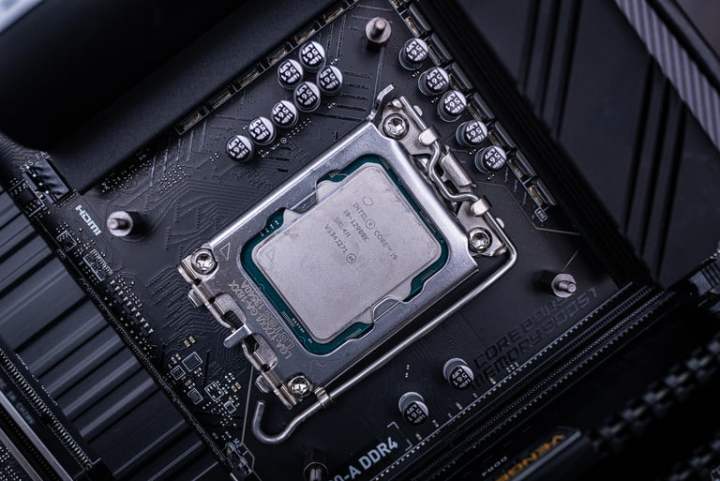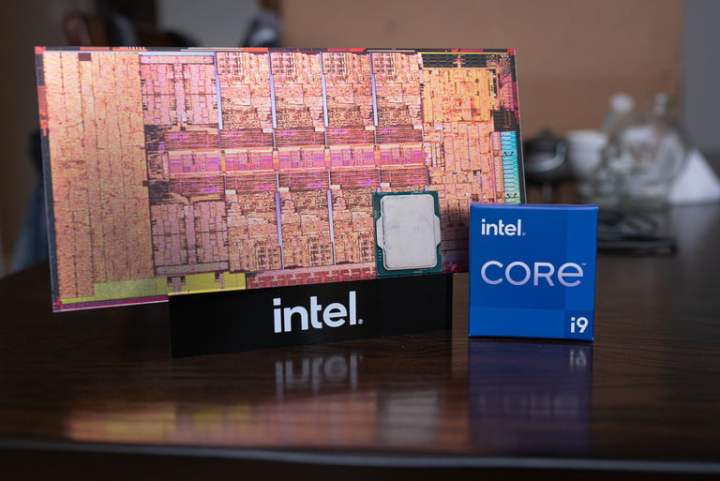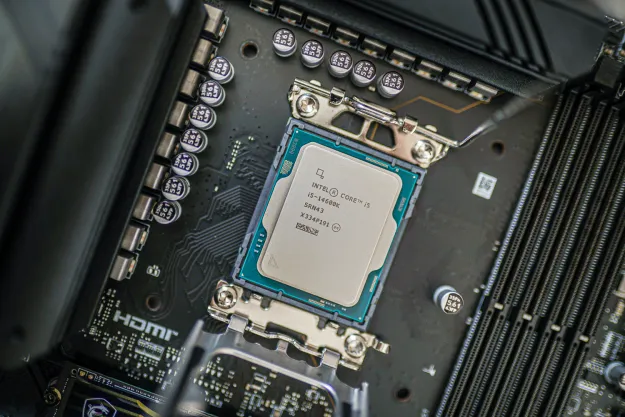Intel’s latest and greatest, the Core i9-12900KS, is lauded as the best gaming processor on the market — a claim Intel made just six short months ago for its Core i9-12900K. Clocking in somewhere between $750 and $800, it should deliver the highest performance out of any consumer CPU you can buy.
It might be the best Intel processor around based on early benchmarks, but that doesn’t mean you should necessarily run out and buy it.
Edging out marginal improvements isn’t anything new for the world of PC hardware, but Intel’s latest attempt strikes an ugly balance between price and performance gains, and it only amplifies the worst problems with the 12th-gen Alder Lake platform.
The performance problem

The main problem with the Core i9-12900KS is how little it offers over the vanilla Core i9-12900K. These S-series, or special edition, processors from Intel don’t usually offer a big performance improvement. They are binned chips, utilizing the cream of the crop of dies Intel has to extract every last drop of performance.
But the Core i9-12900K already does that. At most, the Core i9-12900KS is 8% faster based on early benchmarks (and my own testing of the Core i9-12900K). Tom’s Hardware found less than a 3% difference while gaming, and that was only at 1080p. And let’s be honest, anyone in the market for the Core i9-12900KS probably isn’t running games at 1080p.
Most workloads will see little or no difference with Intel’s latest special edition.
The Core i9-12900KS is a bit better in productivity-focused apps, around 5%, but most workloads will see little or no difference with Intel’s latest special edition. You can achieve that extra boost with the Core i9-12900K and a little bit of overclocking, but that’s the problem — the Core i9-12900KS has support for more overclocking features.
In particular, the Core i9-12900KS supports Enhanced Thermal Velocity Boost and Adaptive Boost Technology (ABT), two features that were surprisingly absent from the Core i9-12900K. Neither are new, and they’ve shown up on previous generations of Intel processors. They’re what help the Core i9-12900KS achieve its higher clock speed, though.
There isn’t a clear reason why the Core i9-12900K couldn’t support these features, as they offer auto-overclocking functionality based on data from the processor. The Core i9-12900KS may offer a slight performance improvement, but its benefits are at least partly coming on the back of these technologies; technologies that the base model should have included.
The price problem

It doesn’t matter if the Core i9-12900KS is only 5% faster if the price is right, but it isn’t. Intel has shared a price of $739, but it will likely sell closer to $800 (at Micro Center, it’s actually $900). The Core i9-12900K has a list price of $589, for example, but it sells for closer to $620 at retailers. Practically, the Core i9-12900KS is $180 more expensive than the vanilla version.
Clearly a 5% performance improvement isn’t worth $180, but there’s a larger problem here. The last KS-series processor Intel released was the Core i9-9900KS, which was only $50 more expensive than the base model at most. The Core i9-12900KS offers a higher clock speed boost, but as benchmarks are already showing, it doesn’t make a huge difference in real applications.
I’m all for halo products that offer the best of the best for performance, but the delta between the Core i9-12900K and Core i9-12900KS just isn’t practical. Part of the reason the Core i9-12900K shocked me originally was its competitive price compared to AMD. Now that Intel has the lead, it almost seems like the company is back to its old ways — charging a large premium simply because it can.
The thermal problem

The final issue, which really puts the other two into perspective, is the thermal problem. The Core i9-12900K is already a hot chip, and it has very little room to grow. As a binned version of that chip, the Core i9-12900KS has even less room, all while consuming more power and producing more heat.
I don’t think CPU efficiency is nearly as important as marketing slides make it out to be, but loud fans and toasty temperatures are a different matter. When overclocking the Core i9-12900K, I consistently ran up against its 100-degree Celsius operating limit. Even at stock, the processor can easily travel into the high 80’s and low 90’s depending on the workload.
Efficiency matters once you’re hitting the upper limit of temperatures a processor can handle.
The Core i9-12900KS doesn’t have anything different going on thermally — it’s the exact same chip, just tuned a little higher. Both the 100-degree Celsius limit and and 241W maximum power draw are constant factors according to early testing. Efficiency may not be as important as some make it out to be, but it matters once you’re hitting the upper limit of temperatures a processor can handle.
Consider, too, that I was able to hit 5.4GHz on the Core i9-12900K with minimal tweaking in Intel XTU. It was hot, and it drew a ton of power, but that’s not any different than the Core i9-12900KS. The main difference is that the Core i9-12900K is $180 cheaper, and it doesn’t require a 20% increase in power draw for slightly better performance.
Vanity or halo product?

The Core i9-12900K was a massive achievement for Intel. The Core i9-12900KS is an exercise in self-indulgence. Intel hasn’t released pre-binned versions of its flagship chips for the last several generations, and the return to this product category carries a much higher price tag than previous versions.
If you want the best processor money can buy, get the Core i9-12900K. At most, you’re giving up a few percentage points of performance, which you can easily clean up with overclocking.
Editors' Recommendations
- Gamers are reportedly returning Intel Core i9 CPUs in droves
- Intel just launched the ‘world’s fastest’ CPU
- Intel may have a monster new CPU coming soon
- I tested Intel’s new overclocking tool, and it does AI all wrong
- Apple’s M3 Max appears to keep up with Intel’s top desktop CPU



